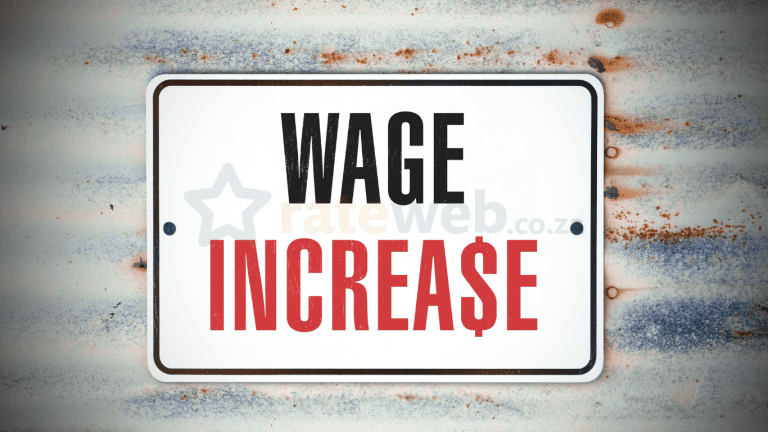We tried freelancing on Upwork. Here is what you may want to know.
- Upwork is one of the largest platforms where you can get hired by international clients.
- Signing up and applying for jobs is free, but landing the first job as a beginner without experience, reviews, and ratings is hard.
- Successful full-time freelancers can earn a living wage.
A google search query for “how to make money online in South Africa” yields about 734 000 000 search results. This suggests that there are numerous ways for South Africans to make money online – but the question is – is it enough to sustain a living?
Or will it end in tears?
We tested one of the many make money online options to find out.
How to make money online in South Africa?
South Africans trying to make money online have to choose from various options: doing paid surveys, transcribing, translating, tutoring, online trading, affiliate marketing, dropshipping, starting a YouTube channel, influencer marketing, social media management, freelancing, and getting paid for performing online tasks.
Suppose you stick around many online platforms and communities on social media. You will quickly notice from some users that some options are not viable in South Africa.
These are mostly low paying options that will likely cost you more in data charges than your earnings, considering the high cost of data in South Africa. But if you have unlimited internet access and data costs are not a concern, these may pretty well be easy ways to make some extra money.
How to make money with freelancing.
Freelancing is a great option to start making a lot of money online. Some professionals even leave their jobs in search of financial freedom in the gig economy.
Suppose you have a skill that you can use to deliver goods or services online. You can get paid to use your skills online.
This could be anything you are good at. Think writing, graphic design, web development, programming, translating, marketing, coaching, photography, video editing. Even professionals in engineering, accounting, medicine and law also do freelance work to earn extra money.
With freelancing, you have the opportunity to get paid for your skills. Many companies and individuals would like some work done on a short-term basis without hiring permanently. The scope of work can even include long term projects where it is not economical to hire someone permanently.
Enter Upwork, one of the most popular and most extensive online marketplaces for freelancers where you can get hired for your skills. Even big tech companies like Microsoft, Google and Airbnb hire talent on Upwork.
Figure 1: You can make money online in South Africa with Upwork
How Upwork works.
Clients who are looking to hire on Upwork post jobs on the platform; freelancers, in turn, submit proposals for the jobs, and the clients choose the freelancer who they think is the best fit for the job.
Alternatively, clients can screen freelancers’ profiles and send invites to a pool of freelancers they potentially want to hire. Freelancers are generally assessed on their skills, experience, portfolio of work, testimonials, and reviews from past jobs.
Upwork also offers recruitment services through their talent scout offering. Talent scout is a program where Upwork recruiters prescreen and prequalify professionals in various fields for clients who want to hire top quality professionals on the platform. The Talent scout program provides clients with a pool of potential talent at no extra cost, saving them the time to screen and assess numerous profiles.
So far, with the recruitment methods mentioned above, it is the freelancers who approach clients in search of work. However, Upwork also offers a chance for freelancers to be approached by clients.
Starting in 2020, they introduced Project Catalogue, a feature that allows freelancers to design and sell project packages. As a freelancer, you determine what work you will do, what deliverables you provide, the turnaround time, and the prices for your package.
The Upwork promise for freelancers (as displayed on their website and ad campaigns) is to help you “work the way you want”, choosing the kind of work you want and the clients you work with. Our challenge was to test if this is a viable way to make a living in South Africa.
The experience on Upwork.
We spent a great deal of time on numerous websites, podcasts, YouTube channels and online forums researching the best practices for completing killer profiles that get hired. After completing a profile, we crafted a convincing portfolio (at least to our expectations) of previous work and set our hourly rate.
After setting everything up, we started applying for jobs. Again, we made use of various resources to learn how to craft proposals that get hired online. There are even webinar recordings and Upwork community members who are ready to advise beginners.
Initially, the Upwork test drive was supposed to last only a month to see how much we could earn in a month. However, because of a difficult start, it ended up taking two months to generate results we could report on. Our profile was crafted with a focus on article writing. Therefore, the jobs feed search criteria included blog writing, guest posting, SEO optimisation, and website content strategy as keywords.
In the first month, 12 proposals were sent using the 20 free connects received at signup plus ten bonus connects for completing a user experience survey. Connects are tokens that get deducted each time you submit a proposal. Once depleted, you can buy additional connects for $0.15 (R2.04) each.
We decided against buying more connects as we wanted to assess how easy it would be to earn without spending any money on the platform. Of the first 12 proposals sent in the first month, only four received responses from clients, but none resulted in a hire. Hence, we went in for a second month.
At the beginning of the second month, we received another ten free connects. We would also lend our first job during the first week of the second month – $25 (R340) for a blog article. The client eventually upgraded the contract to $50 (R680) apiece for three articles, with a turnaround time of one week for each article. In the final week of the test run, we landed another contract – $18 (R245) for creating article outlines for a blog.
After deducting 20% in Upwork fees and waiting one week for our first withdrawal request to be approved (because of an Upwork security measure), we managed to withdraw $134.40 into a PayPal account. Withdrawing into a South African bank account took four days, and we ended up earning R1842 after bank charges.
What we learnt freelancing on Upwork.
We have summed up the key takeaways from our experience freelancing on Upwork in South Africa. And here is what we learned:
1. Starting as a beginner on Upwork is not easy. As a beginner, you have many odds stacked against you: Your lack of experience on the platform will harm your chances of getting hired because of a lack of reviews and ratings. Then, you will only have your proposal and profile to stand out against the competition; trust me, there is a lot of it.
If you get hired as a beginner, it will likely be low budget clients trying to take advantage of beginners. The moral of the story here is – patience is key. You have to play the long game, not only on Upwork but your freelance career as a whole.
2. Fellow South Africans on Upwork seem to be struggling as well. The top freelancers in South Africa page for any field gives you a handful of South Africans in that field.
You will quickly notice that only a few have completed over 100 jobs, and the rest who show up on top of the list may not have completed even a single job. As a South African, you have your location working against you.
Most clients prefer working with talent from their location the same way you would prefer dealing with someone from your neighbourhood or city on Gumtree. In addition, a few of them are from South Africa.
There are also time zone considerations at play. It is much easier to track the progress of a remote worker who is in the same timezone as you are. And as a freelancer, you will likely have to be awake at night to schedule meetings with clients from Australia and the USA – they make up most of the hiring clients on Upwork.
3. You probably need supplementary income streams while starting on Upwork or any freelance job. Given the challenges you are faced with when beginning a freelance career, it will likely take you a long time before you land your first paying job or your ideal client. If you have decided to go the freelance route full time, you will probably need a sizeable amount of savings to sustain yourself before your freelance career can take off.
4. Good long term client relationships matter. In any freelance career, maintaining a good client relationship will be vital for your success. Not only will they give you valuable experience, but they will give you reviews and probably refer you to their network for more work.
5. Experiment. Copy from others. Shake things up. There are various strategies to achieve success on the platform. Be creative and try different ones to see what works for you.
Is Upwork worth your time? The verdict.
There is potential to make it on Upwork and in the freelance market in general. However, you need to set realistic goals for yourself as you begin. There should be a correlation between your expectations and your experience. Some experienced freelancers who left their full-time jobs manage to earn more than what they earned previously.
As a beginner, you will need to be patient to build enough experience and a track record that will help you attract your ideal clients. Also, it would help if you considered having other streams of income to sustain yourself until you reach your desired earning potential through freelance work.
Frequently Asked Questions.
How much money can you earn as freelance worker?
How much you make mostly depends on you, the freelancer. As a freelancer, you determine the rates you charge your clients, so how much you charge is important. Your prices will depend on your skill level, experience, track record on past projects, and target market. Your earnings also depend on your ability to find your ideal clients, so you have to work hard to make yourself marketable.
Statistics from Upwork show that six out of ten freelancers who left permanent employment make more than they used to earn before they started freelancing. The average freelance hourly rate in the USA is about $20USD, which is about R275 at the current exchange rate. Although figures for South Africa are unclear, multiple reports suggest that freelancers in most countries can expect to earn more than the average pay for full-time employment.
Could freelance work be the answer to youth unemployment in South Africa?
It seems possible that the unemployed youth in South Africa can take advantage of job opportunities overseas through freelance work. However, as our trial run suggests, this is not a get-rich-quick scheme as there are many factors involved. Hard work and commitment are needed to be successful.
Reports also suggest that the most successful freelancers have previous experience from their previous jobs. Without experience, it may not be easy to land the first job. First-timers may have to take on low-paying jobs or even work for no pay to gain experience and build a portfolio of work. But the chances of success cannot be ruled out.
Should I use hourly billing or fixed pricing for my projects?
Hourly billing and fixed pricing are two of the most common methods you can use to charge your work. Each has its advantages and disadvantages. For instance, with fixed pricing, you have to correctly estimate the amount of work and the required time to complete the tasks in a project.
Else, you run the risk of working long hours and feel like you undercharged the work. On the other hand, some clients are critical of freelancers who spend more time on a job to bill more hours. Value-based pricing offers another option, where you charge depending on the expected monetary value of your work.
For example, you could charge a certain percentage of the amount you expect to earn for your client, or even how much you save them. Therefore, it is advisable to try different billing methods to determine which one works best for you and your clients.
Do I have to pay anything to make money on Upwork?
Creating a profile and applying for jobs on Upwork is free. However, you spend connects when sending proposals for jobs on the platform. Upwork gives you twenty free connects on signup and an additional ten connects every other month.
In the case that your connects run out, you can top up more at $0.15 (R2.04) each. Upwork makes money mainly by charging a commission on the freelancer’s total earnings. The nominal commission is 20% of your total income charged after the client pays for your work, so freelancers have to account for this when pricing their work.
However, if you create a good relationship with a client and manage to bill them more than $500 (R6 816), you will be charged 10% commission and only 5% if the bill is more than $10 000 (R 136 321.00).
What other alternatives can I use besides Upwork?
Besides Upwork, you can create a profile on any one of the following platforms: PeoplePerHour, Freelancer.com, Fiverr, and other industry-specific marketplaces such as Contently for creative professionals; textbroker.com and freelancewrittinggigs.com for writers.
Is there a local alternative for Upwork in South Africa?
Local freelancers tend to gain new clients through their personal and professional networks. Others advertise their services on their websites. LinkedIn and local classifieds in newspapers and websites like Gumtree, OLX, Yellow Pages, and Facebook Marketplace are also popular options.
In addition to these big names, some less popular local players are taking the challenge to Upwork in the local market. These include the South African Freelancers Association, NoSweat, and Mintor










































